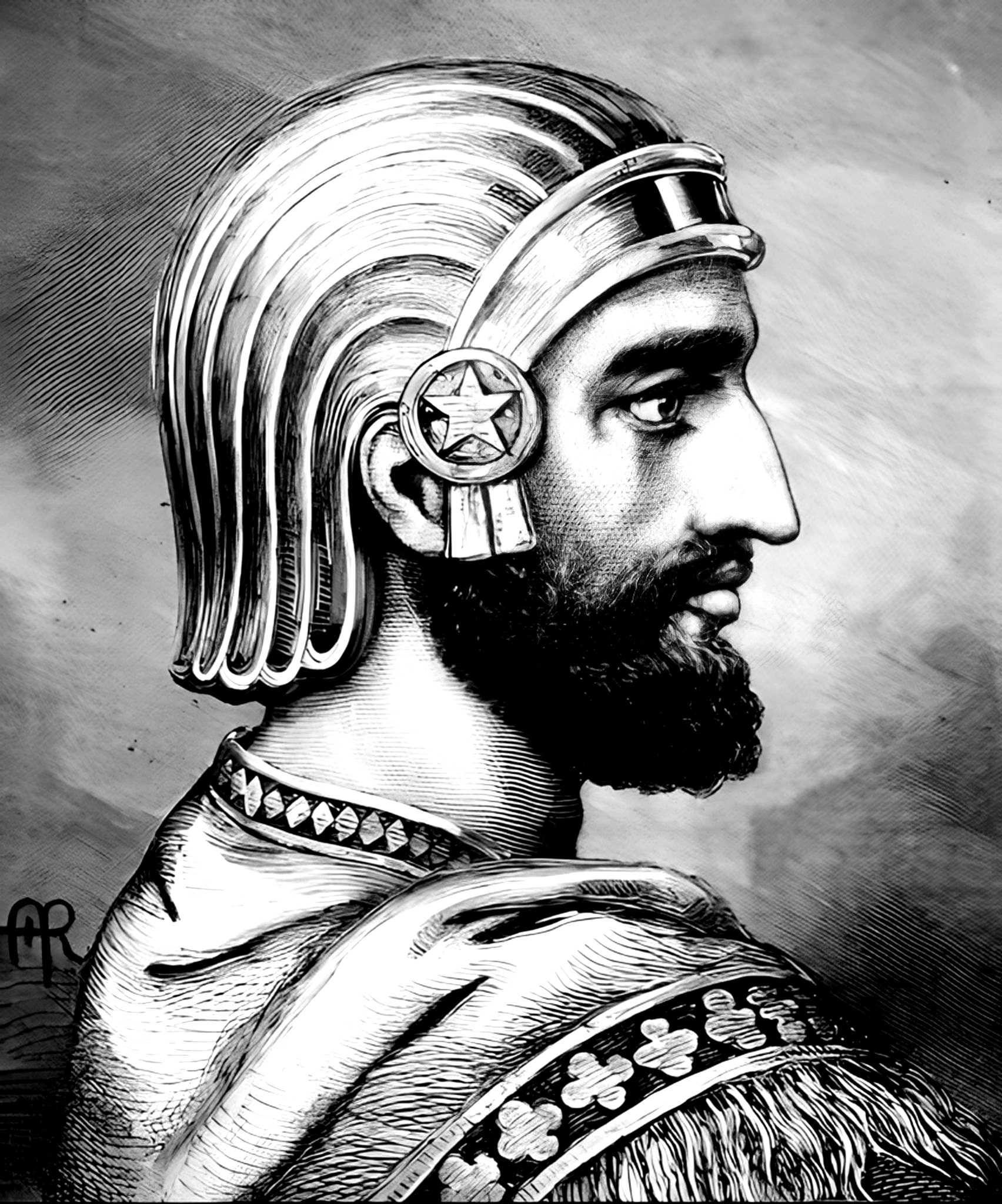No Gods...

Everything new is understood through the filter of the old.
~David Eagleman
Ockham's Razor

In his Intuition Pumps and Other Tools for Thinking, Daniel Dennett invites the reader to learn and use the cognitive toolkit that he's developed over his long career as a philosopher, writer, and cognitive scientist. While there are many notable tools for thinking in the book, I've chosen in this course to only focus on a few. Nonetheless, the one we are covering today is an essential one for any critical thinker. Dan Dennett, as a matter of fact, mentions it by page 38 of a nearly 500 page book. We are talking about Ockham's razor.
Ockham's razor (sometimes spelled "Occam's razor") is a methodological principle attributed to the 14th century logician William of Ockham, although it is probably much older (Dennett 2014: 38-39). This principle states that given competing theories/explanations, if there is equal explanatory power (i.e., if the theories explain the phenomenon in question equally well), one should select the one with the fewest assumptions. Framed slightly differently, Ockham's Razor is the view that, all things being equal, the simplest explanation (i.e., the explanation with the fewest assumptions) is probably the right one. Dan Dennett puts it this way:
“[D]on't concoct a complicated, extravagant theory if you've got a simpler one (containing fewer ingredients, fewer entities) that handles the phenomenon just as well. If exposure to extremely cold air can account for all the symptoms of frostbite, don't postulate unobservable 'snow germs' or 'arctic microbes.' Kepler's laws explain the orbits of the planets; we have no need to hypothesize pilots guiding the planets from control panels hidden under the surface” (Dennett 2014: 38).

Tomato plant root rot.
We've actually already seen this methodological principle put to use. Recall the lesson titled The Third Realm. In it, Charles Wheelan reminds us that "any regression analysis needs a theoretical underpinning. Why are the explanatory variables in the equation? What phenomena from other disciplines can explain the observed results?” This all relates to Ockham’s Razor. The general idea is that if you are attempting to find a relationship between two data sets, there should be some acceptable theory that links those two data sets. Moreover, this theory must abide by Ockham's razor. You shouldn't make extravagant connections. If you have to resort to extravagant connections, you probably have no business linking those two data sets. The example I gave in that lesson was the following: if you're trying to explain some rot in the plants in your garden, you really shouldn't include details about how much you spend on Starbucks every month (because it's just not relevant). If you were to try to link your Starbucks spending and the rot in your garden, then you'd probably end up adding more and more variables to make the connection—since there appears to be no obvious, straightforward connection. Ah, but now you're adding variables! Thus, you'd be violating Ockham's razor. This is what the razor does: it shaves off extra assumptions, extra connections, extra links, extra entities. You gotta keep it simple!
There is also evidence from the field of machine learning (ML) that Ockham’s razor is a formidable approach to learning from data. For those unfamiliar with ML, model selection is the process by which one decides what type of model to use on a particular set of data, a decision which includes choosing how many and what type of free parameters the model should feature. One would assume that very flexible models (with many free parameters) would be superior to simpler models, but these actually tend to overfit the data, subsequently doing poorly on data that the model has not seen. In other words, highly-flexible models simply don’t generalize well. As a result, best practices in ML make it so that model selection is largely the task of finding the simplest model that explains the data reasonably well (Deisenroth et al. 2020: 254-258). Put bluntly, machines learn from data better if you keep it simple, and, needless to say, better is good.

By the way, Dennett (2014: 40-41) also informs us of a new concept invented by molecular biologist Sydney Brenner: Ockham's broom. Ockham's broom is the process by which inconvenient facts are swept under the rug by the intellectually dishonest. So, whereas Ockham's razor is a theoretically sound tool, Ockham's broom is a weapon for the advocates of anti-thinking. The most malicious aspect of Ockham's broom is that it can only be noticed by experts. This is because it is primarily used during an explanation. An expert who is secretly a champion for some theory or other will present the issue to you such that facts that are detrimental to his/her view are conveniently left out. Thus, the issue is presented such that you are more likely to agree with him/her. Dennett is quick to add, however, that this is also a favorite tool of conspiracy theorists(!). How can you keep an eye out for something that is likely invisible to you? You have to keep up with the experts. In other words, you'll have to see what other experts say on the matter too. It's so much work to think critically!
So Ockham's razor is awesome. But we need to make some comments before you really understand it. It's not only a razor, but it's also an anti-razor (Keele 2010). Look closely at the definitions and description of the razor given above. Notice phrases like "equal explanatory power" and "all things being equal". This means that there is a lower limit to how much we can simplify our theories. We shouldn't simplify them to the point where they no longer explain some phenomenon well. Here's an example that I use in my 101 course and which Dennett also discusses. Some try to say that the simplest explanation for the universe, intelligent life, etc. is God. However, this thesis violates the anti-razor clause in Ockham's razor. If we were to reduce our whole explanation to "God did it", then we would actually lower our explanatory power. How so? It's because God is a supernatural entity, and literally no one is capable of understanding supernatural entities. In fact, that's the basic definition of 'supernatural'. So, if one were to pose God as an explanation for some natural phenomenon (like the universe or intelligent life or whatever), then one would be positing something they don't understand as an explanation. Of course, that's the complete opposite of an explanation. Put bluntly, to attempt to explain something by saying it has a supernatural cause is to explain nothing. If anything, it is more so an admission of ignorance than anything else.
So that's Ockham's razor. It has two parts: the razor and the anti-razor. We will use it again in this lesson.
Argument Extraction


The End of Faith

In today's reading, Socrates and friends note that bringing about their beautiful city might only be possible if they hit the reset button, culturally speaking. What they propose is to vanish from the city everyone older than 10 years old. It is in these young minds that are left that they can put in the necessary beliefs for the optimal functioning of their kallipolis. This, I'm sure, might spark all kinds of ideas in your mind—quite a few of them being troublesome. But Socrates and friends might have a point. It may very well be the case that you only believe some things because you were taught them when you were young and that you would never have come to believe those things had they not been inculcated in you from childhood. And so, inspired by Plato's Republic, I'd like to take the next four lessons to explore some beliefs that, once they've grown their roots inside you, are unlikely to be eradicated. I want to begin with religious belief, a type of belief that evolutionary biologist Richard Dawkins (2006) said is akin to child abuse if you force it on your children.
Let me begin by stating what I won't do in this section. I will not survey various arguments for the Judeo-Christian God's existence and then respond to them, while simultaneously peppering in the various arguments I know of that are against God's existence; I've already done that in Aquinas and the Razor, the two-part lesson composed of The Problem of Evil (Pt. I) and The Problem of Evil (Pt. II), Pascal's Wager, Death in the Clouds (Pt. I), and Death in the Clouds (Pt. II). Rather, what I want to do here is give an entirely naturalistic account of how religion arose and then make an argument using Ockham's razor. In other words, I will give a purely non-supernatural account of how it is that belief in the Judeo-Christian God came to be (despite the Judeo-Christian God not actually existing) and then I'll propose a dilemma. What's more likely: that my naturalistic explanation is true or that the Judeo-Christian God actually exists?
Here's my naturalistic explanation. A version of the theory I'm about to give goes back to Charles Darwin, although I'll be using the updated version from Torrey (2019). There's two parts to this explanation. The first has to do with the cognitive mechanisms that hominids evolved due to evolutionary pressures. It is these cognitive capacities that allowed belief in deities to inhabit the minds of hominids like us. The second part has to do with cultural evolution. Let's begin with the evolution of the cognitive capacities that enable religious belief. Per Torrey, religious belief is a by-product of the evolution of the following cognitive abilities:

Beginning with Homo habilis, about 2 million years ago, hominids underwent an increase in brain size and general intelligence (chapter 1).
As Homo erectus, about 1.8 million years ago, hominids developed self-awareness (chapter 2).
As archaic Homo sapiens, beginning around 200,000 years ago, hominids developed an awareness of each other’s thoughts, albeit it is a projection (or prediction) of what another is thinking; this ability is sometimes referred to as a Theory of Mind (chapter 3).
Beginning around 100,000 years ago, Homo sapiens acquired a second-order Theory of Mind. They were able to project minds not only unto others (to help coordinate social interactions) but also unto themselves. They could, in a sense, objectify themselves. They could consider how others perceive them. For example, Annie could think about what Sally thinks about her. Moreover, Annie could think about what Sally thinks that Annie thinks about her, and so on and so forth (chapter 4).
As modern Homo sapiens, beginning about 40,000 years ago, we developed an autobiographical memory, along with the capacity to project ourselves backward and forward in time. So, for the first time in human history, we could understand death. Also for the first time we could envision alternatives to death, such as notions of the afterlife (chapter 5).
These cognitive capacities either build on each other or are required for conceiving of religious beliefs. For example, the capacities listed in 2-5 wouldn't have been possible without an increase in brain size and general intelligence. That's an example of how some capacities built on others. Now consider the capacity for autobiographical memory: memory for one's personal history. This capacity coupled with a Theory of Mind and a second-order Theory of Mind allows one to project onself into the past and the future. It is these cognitive capacities that enabled Homo sapiens to even be able to think about death (and eventually what happens after death).
How did autobiographical memory give rise to belief in deities? Although hominids had been dying for millions of years, only Sapiens could make the connection to their own life. Not only did their friends die, but they realized they would die too. Moreover, the decomposition of bodies (e.g., brains liquefying and oozing out of the ears and nose) must’ve been startling to Sapiens who could imagine the same thing eventually happening to them. This, by the way, is much contrasted with how chimps deal with death: they mostly just ignore dead bodies. So, Sapiens wondered about death and perhaps also how to avoid it. Inevitably, understanding death causes fear, and thinkers from Ancient Rome to Thomas Hobbes and beyond have found the genesis of religious belief in the fear of death. Tellingly, many versions of the afterlife are just extensions of life (with less bad stuff). For example, for Austrian aborigines, the afterlife is similar to the territory in which they lived their lives, except there’s more kangaroos and other game for hunting. Thus, one can see a natural progression from the acquisition of autobiographical memory to the beginnings of belief in an afterlife.1

Día de los Muertos
paraphernalia,
modern-day
ancestor worship?
The second half of the story has to do with cultural evolution, although there's a bonus cognitive evolution involved. This process starts with agriculture. Although different groups began the transitions at different times, agriculture and settled life began at around the same time, relatively speaking: ~14,000 years ago. The impetus, per Torrey, was the conjunction of a milder climate and the newly developed cognitive capacity for planning. In other words, it is only this new cognitive capacity to plan coupled with a milder climate that enabled the settling of Homo sapiens. Only the conjunction of these two explains settling because there had been many milder climate cycles in the past but no settled societies. In any case, soon after this, Sapiens began ancestor worship. This is because Sapiens now stayed in the same region year-round and buried their dead relatives nearby. The constant presence of their relatives' graves began a tendency towards asking dead relatives, whom they felt were somehow still alive in a way, for favors and help on Earth. And so belief in supernatural spirits began. These ancestors eventually morphed into bigger gods, perhaps through embellishment or perhaps by chance. For example, perhaps one exceptional person dies and over time their story becomes more mythical. Or perhaps an exceptional person dies and is asked by his descendants for help and serendipitously (i.e., by luck) they actually do receive good fortune, as in their crop yield is large or they win a battle or whatever. This ancestor, then, begins to accrue the characteristics of a god.2
Let's move forward a couple of thousand years. Continuous with the rise of big states came the development of more powerful gods. These were wild and crazy times, religiously speaking. The gods, which were now statues, were still heavily anthropomorphic—a relic of their ancestor worship genesis. They needed food two times a day, and they liked to have gifts given to them on their special holidays. The gods, which again were statues, were even thought to be related to each other and so were taken to different cities to visit with relatives. During this time, the gods were also involved in warfare. Although the cause of many conflicts is known to be purely secular, e.g., land disputes, resource disputes, etc., the conflict was made to seem as conflict between deities—a sign that the god personified the city-state. Interestingly, at the same time that the gods were being more involved in secular matters (like war), the rulers (i.e., kings) were gaining divine attributes—a synthesis of church and state seen in Mesopotamia and Egypt. The fact that major religions rose in conjunction with adoption from a major empire, e.g., Christianity and Constantine's Rome, Buddhism and Ashoka's Maurya Dynasty, Islam and Muhammad's conquest of the Levant, supports Torrey's view. In other words, it looks like all the major world religions were successful only because they were at one point adopted by some powerful empire—not because they're actually true.

And so one can begin to see how slowly but surely Sapiens acquired the capacities to hold religious beliefs and how ancestor worship began to morph into something that is recognizable as religion. And this brings us to modern times. If anyone cares to read the histories of various religions, one can see that the evolution of the religion's beliefs are pretty straightforward. For example, in The Evolution of God, Robin Wright (2010) pieces together the rise of Judaism, Christianity, and Islam. Time and time again, Wright shows that it is the facts on the ground, what was happening historically, that gave rise to certain beliefs and not others. In short, there's no need to believe in a god; the facts on the ground explain why the belief in said god arose (despite the god not existing).
Here's an example of this. In chapters 6 and 7, Wright gives a history of the transition from monolatry (belief that there are many gods but only yours deserves worship) to monotheism (belief in only one god). Early in its history, the religion of the Israelites (now known as Judaism) was monolatrous. Then, at a certain point in history, when the Assyrian Empire was on the ascendency, Israel fell under economic hardship and was compelled to form alliances with other states—allies which imposed humiliating taxes on the Israelites. At this point, the Hebrew writings begin to turn on the aristocracy and the wealthy, as well as foreign powers, blaming the elite for their troubles. In other words, it looks like rejection of foreign gods was inspired by a resentment of great powers (like Assyria) and opposition to forced/unequal alliances (and the elites that entered into them). Put bluntly, bad vibes against their oppressors and their not-so-good friends led to xenophobia and rejection of other's cultures and beliefs.

Cyrus the Great.
Then, in 587 BCE, Babylon conquers Jerusalem and burns down the temple. This is the catalyst for the transition into monotheism. The Judean theologians spend half a century under Babylonian rule, until Cyrus the Great of the Achaemenid Persian Empire liberates them—which is why he is the only non-Jew to be labeled “messiah” in Hebrew scripture (see Isaiah 45:1). During this time, the Israelite theologians had to rationalize how their great god would allow his people to be conquered in such a humiliating fashion. Out of their shame grew a justification: their subjugation was punishment for their own misdeeds, such as worshipping gods besides Yahweh. This, notes Wright, is a common theological “divine wrath” interpretation for geopolitical catastrophe during the time period and in the region (e.g., the Moabites reasoned the same way when the Israelites subjugated them). But this was not enough to force the transition from monolatry to monotheism. What did this in the case of the Israelites is the magnitude of the subjugation, which included the destruction of the temple, forced migration, and servitude. At a time when national identity, religious identity, and ethnic identity were all intertwined, the only theological-logical solution to this degree of subordination was to argue that Yahweh is allowing this to happen as punishment. But this leads to the next logical conclusion: Yahweh uses the Babylonian god Marduk as his puppet to meet out his punishments. Yahweh must be very great indeed. And so, this line of reasoning progressed and out of Israelite resentment grew theological revenge. It was more than Marduk being a puppet. It was that only their god (Yahweh) really existed; all other gods were false. And that's how monotheism came about in Judaism.
So that's the story. Now what's more likely: the naturalistic explanations given above or that the Judeo-Christian God actually exists? I think you know the answer. However, I know there's many impediments to accepting the naturalistic explanation. First of all, the story is complicated and it spans several disciplines that most students aren't familiar with: evolutionary theory, paleoanthropology, deep history, etc. Second, it's difficult to accept that a series of small steps can eventually take one all the way down to a faraway conclusion. This is similar to visualizing how evolution can start off with single-cell organisms and end up with complex animals like us. The key, of course, is gradualism: you gradually make changes to an organism for billions of years and you end up with something totally different. But it is difficult to truly grasp these super long perspectives. The third reason for why it's hard to accept the naturalistic explanation is what got us started down this path. Many of us were taught our religion when we were children. Many of us will never let it go. Those of us who do let go invariably suffer through a moment of crisis. Beliefs that are deep-rooted are, as we can see, special. They tend to stick around, and if you try to remove them, there's a lot of pain involved.
Does it matter? Should you just leave these old ideologies intact in your brain? I don't think so. The neuroscientist David Eagleman (2020, chapter 10) reminds us that older neural networks (i.e., those that were wired earlier on in our lives) have an impact on how newer neural networks are connected. If critical thinking is important to you at all, you might have to dig out the roots of old, outdated beliefs.
And what if you are all-in with the naturalistic explanation? What if you really do think that there's no chance (or very little chance) that any of the world religions are actually true? What does that mean for Ninewells? Should we ban parents from teaching their children religion? Is it child abuse for parents to force their religion on their children?3


- Read from 532d-541b (p. 227-237) of Republic.

Ockham's razor is a methodological principle which states that given competing theories/explanations, if there is equal explanatory power (i.e., if the theories explain the phenomenon in question equally well), one should select the one with the fewest assumptions.
According to some, the principle known as Ockham's razor also includes an anti-razor, ensuring that one should try to get maximal explanatory power in their theories and avoid adding assumptions that underine the explanatory power of the theory.
A fully naturalistic account of the emergence of religious beliefs, a project begun by Charles Darwin himself, is possible.
If one is assuming Ockham's razor, then one should select a naturalistic explanation of religion over belief that the Judeo-Christian God actually exists.
FYI
Suggested Reading: Internet Encyclopedia of Philosophy, Entry on William of Ockham, Section on The Razor
TL;DR: Occam's Answers, What is Occam's Razor?
Supplemental Material—
-
Video: Talks at Google, Evolution of God | Robin Wright
-
Video: Closer to Truth, What causes religious belief?
Related Material—
-
Video: You Are Not So Smart Podcast, David Eagleman - Livewired
Advanced Material—
-
Reading: Pascal Boyer and Brian Bergstrom, Evolutionary Perspectives on Religion
Footnotes
1. Even satirical religious note this aspect of conceptions of the afterlife: that it is typically just an extension of life on Earth. The Church of the Flying Spaghetti Monster claims that their "Heaven" is much like life on Earth except there’s a beer volcano and a stripper factory; their "Hell" is similar to their Heaven but the beer is stale and the strippers have STIs.
2. There are many explanations of how ancestor worship began. I even came across one in the horror mini-series Midnight Mass. In it, one of the protagonists wagers that belief in deities came from thinking about, of all things, campfires. According to his view, when our ancestors were still hunter-gatherers, they would see campfires out in the distance and wonder what that tribe was like, whether they were trouble or potential allies, etc. The character says that we then looked to the sky and gazed at the stars. The stars are like campfires and our ancestors must've marveled at the kind of people that could live in the sky. As such, the notion of a supernatural being that lives in the sky began.
3. Of relevance here might be a discussion on what rights children have. I take up this topic in Towards Kallipolis.

